Regional Schools Commissioners are part of the government’s middle tier of accountability for academies. Brought in last September, they were told to tackle underperformance and to boost the number of academy sponsors. So what have they’ve done so far?
A Freedom of Information request to release full details of the meetings of England’s eight Regional Schools Commissioners and their headteacher boards (HTBs), along with a register of their interests, has resulted in partial success.
A record of their meetings between September and December last year has now been published on the Department for Education (DfE) website, albeit tucked away.
Details include a list of main agenda themes, a summary of decisions taken and a full register of interests for all members.
The eight RSCs oversee all academies in England, intervening in under-performing schools and brokering sponsors to take over failing ones. From June, they will also decide which free schools will open in their area.
In December, Green MP Caroline Lucas tabled a parliamentary question asking for transparency on these matters.
Children’s Minister Edward Timpson said the government was reviewing its approach as the role became more established, and would consider the “most appropriate way to do this without compromising the boards’ ability to provide free and frank challenge, as well as personal and commercially sensitive information”.
The government did not intend to retrospectively revise and publish a note of past HTB meetings, he added.
Ms Lucas said it “rang alarm bells” that the commitment to publish information was “being shaped by considerations of ‘commercially sensitive information’”.
So what does the information reveal about the new RSCs and boards?
As exclusively revealed by Schools Week last year, RSCs will be judged on the percentage of academies and free schools open in their region, and the percentage of schools issued with an academy order.
On those criteria, West Midlands RSC Pank Patel came top during the first few months, with 35 academy orders approved by his HTB. By contrast, South Central England and North West London’s Martin Post approved only four academy orders and seven academy conversions.
Jennifer Bexon-Smith, who oversees the East Midlands and the Humber and who is one of the two highest-paid RSCs, receiving between £140,000 and £145,000, approved 18 academy orders. Her colleague in the highest salary band, Sir David Carter, the RSC for South West England, approved 17.
The RSC for South East London and South London Dominic Herrington, whose office has the highest staff pay bill at £260,000, gave the go-ahead to 15 academy orders.
The FOI response also showed RSCs would be responsible for “encouraging strong sponsors into the market”. Overall, just 22 new sponsor applications were approved across England between September and December. Lancashire and West Yorkshire topped the bill with six approvals.
Tackling educational underperformance and inadequate governance in academies is also one of the RSCs’ key performance indicators. Twenty-seven pre-warning, pre-termination or termination notices were issued – 17 of those in South East England and South London.
The accompanying register of interests contains declarations of any personal or business interest within the past five years which may or may not be seen as influencing the commissioners’ or board members’ role. Interests vary, with some HTB members declaring siblings and fellow church members who run schools.
So far only one conflict of interest has affected an RSC decision. Sir David Carter was chief executive of Cabot Learning Federation between 2009 and Aug 2014. When one of the federation’s academies, Kings Oak, applied to expand its age range, he left the room during discussion. The decision was instead made by Dominic Herrington.
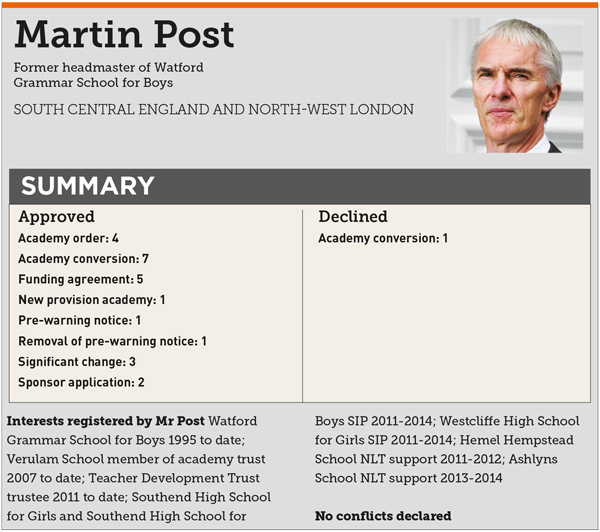
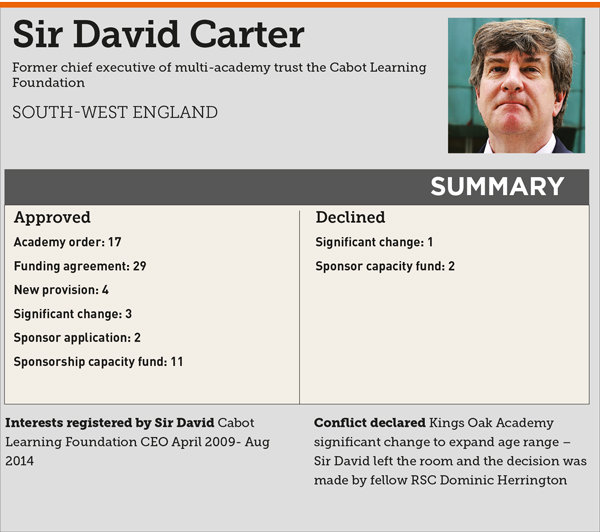
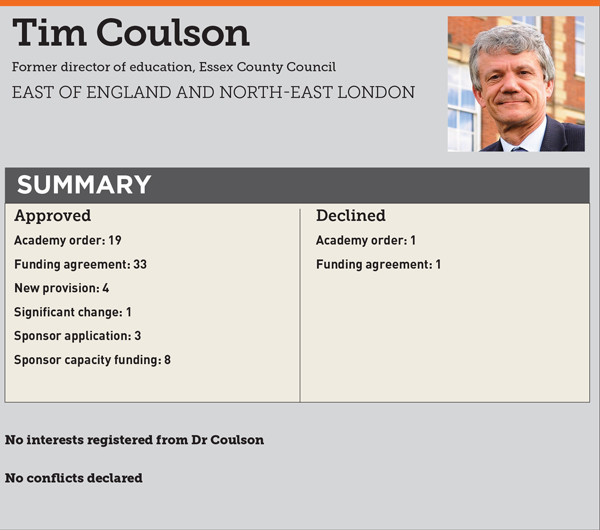
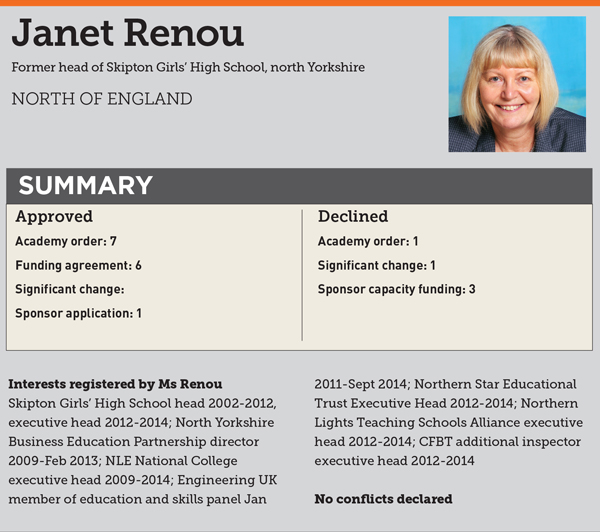
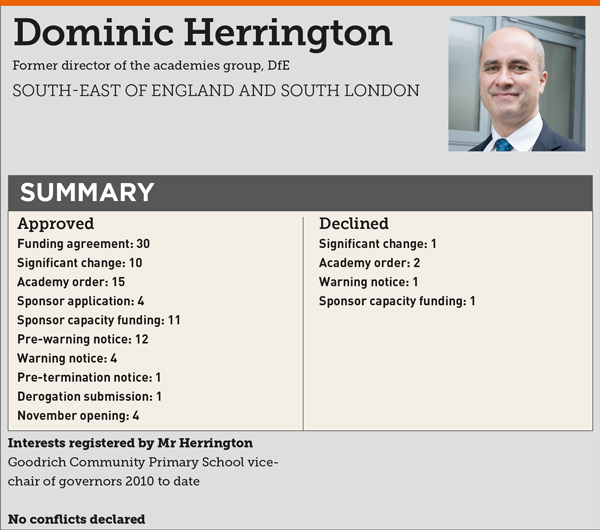
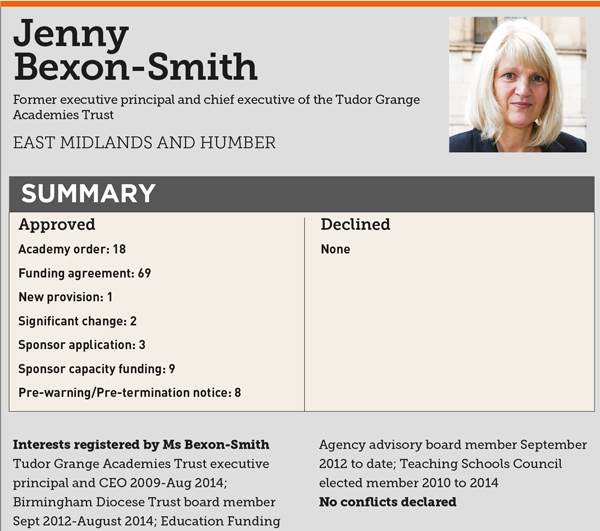
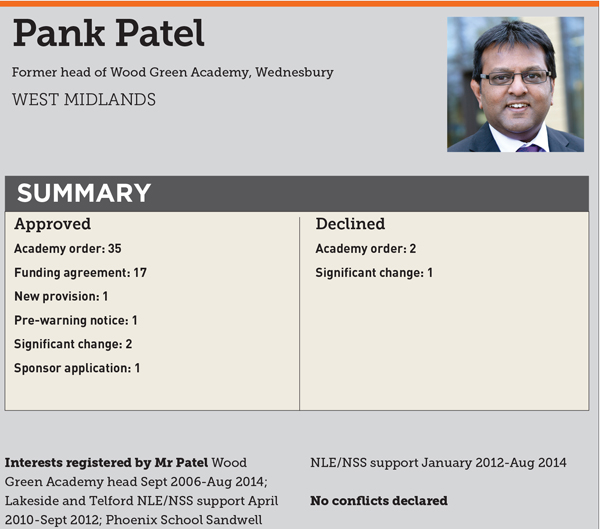
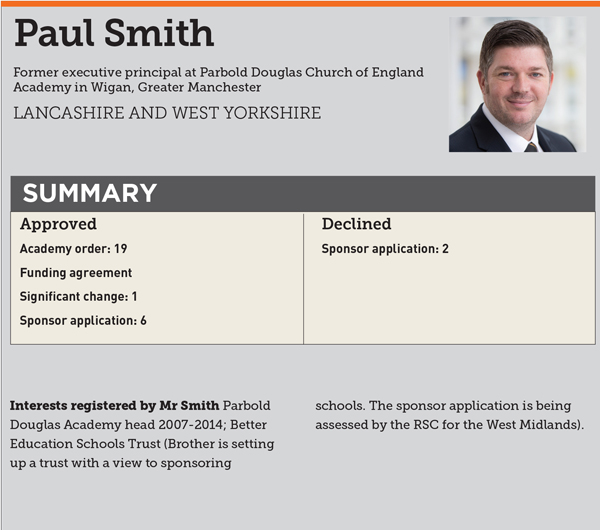


Do the members of the HTB have to declare interests too?
I am shocked that this is the system we have for our education matters in this country.
It’s all very worrying.
They do. It is all in the public register available on the DfE website – we just didn’t have room here!